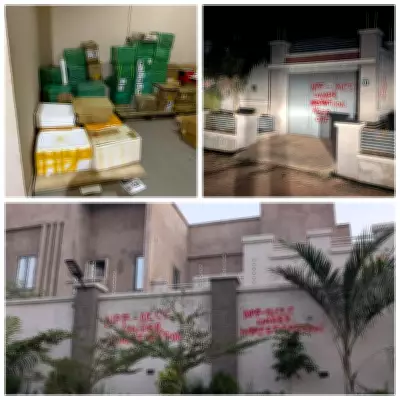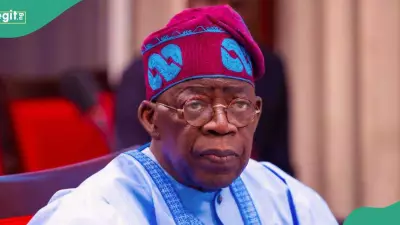
In a stunning revelation that exposes the deep connection between national security and economic decision-making, former Central Bank Governor Sanusi Lamido Sanusi has disclosed how the Boko Haram insurgency directly influenced one of Nigeria's most significant economic policy reversals.
The Fateful Decision That Shook Nigeria
According to Emir Sanusi, the Goodluck Jonathan administration was forced to abandon its planned removal of fuel subsidy in 2012 due to mounting security concerns linked to Boko Haram activities. The former monarch explained that the government feared the economic hardship from subsidy removal would exacerbate the already volatile security situation in Northern Nigeria.
Security Concerns Override Economic Reforms
The timing couldn't have been worse - with Boko Haram intensifying attacks across Northern states, the administration determined that adding economic pressure through subsidy removal would create a perfect storm of instability. Sanusi revealed that security intelligence indicated potential widespread civil unrest that could merge with existing terrorist activities.
"The government found itself caught between economic necessity and security imperative," the former CBN chief noted during his disclosure.
The Economic Consequences
This policy reversal had far-reaching implications for Nigeria's economy:
- Massive continued expenditure on petroleum subsidy
- Delayed economic reforms crucial for long-term stability
- Increased budget deficits and borrowing
- Postponement of necessary economic restructuring
A Pattern of Security-Driven Economic Decisions
This revelation sheds light on how security challenges have repeatedly shaped Nigeria's economic policies. The Boko Haram insurgency, which began in 2009, has not only caused immense human suffering but has also significantly constrained the government's ability to implement necessary economic reforms.
The intersection of terrorism and economic policy remains a critical factor in Nigeria's development trajectory, with security concerns often taking precedence over economic considerations.
Broader Implications for Policy Making
Sanusi's disclosure raises important questions about how governments balance security threats with economic reforms. The 2012 subsidy reversal demonstrates how immediate security concerns can derail long-term economic planning, creating lasting consequences for national development.
The former Emir's revelation provides crucial context for understanding Nigeria's ongoing struggles with petroleum subsidy management and the complex factors that influence major economic decisions in conflict-affected nations.





